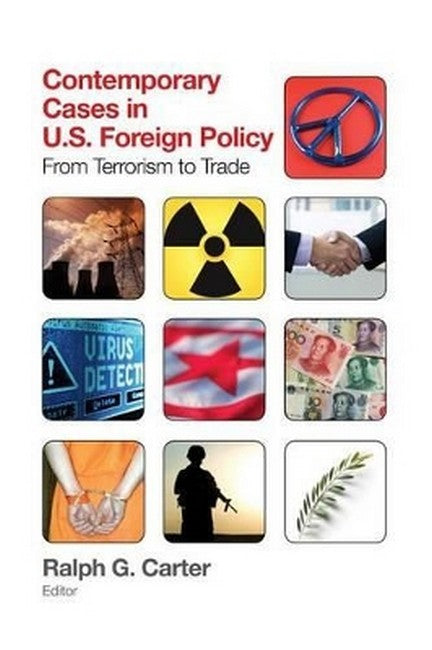Ralph G. Carter is Piper Professor of Texas, Professor, and former Chair of the Department of Political Science at Texas Christian University. His areas of specialization include international relations and comparative foreign policy analysis, with a particular emphasis on the domestic sources of foreign policy. He is the author, coauthor, editor, or coeditor of eight books or monographs (including this one), as well as more than 50 articles, book chapters, review essays, and other professional publications. He has been an invited scholar to universities in the United States, Canada, and the United Kingdom. In addition to serving on the Executive Committee and chairing other committees of the International Studies Association, he also served as President of ISA's Foreign Policy Analysis section, President of ISA's Midwest region, Associate Editor of Foreign Policy Analysis, and on the editorial boards of Foreign Policy Analysis and International Studies Perspectives. He also served the American Political Science Association as a member of its Program Committee. In addition to over three dozen teaching awards and recognitions, in 2006 he became the first person from an undergraduate department to receive the Quincy Wright Distinguished Scholar Award from the International Studies Association-Midwest. In 2012, Princeton Review named him as one of The Best 300 Professors, and in 2013 the "Ralph G. Carter Excellence in Political Science" Scholarship was created at TCU. In 2014 he was named one of 10 Piper Professors of Texas and received the TCU Chancellor's Award for Distinguished Achievement as a Creative Teacher and Scholar.
Request Academic Copy
Please copy the ISBN for submitting review copy form
Description
Part I. INTERVENTION POLICY 1. The United States versus Terrorism: From the Embassy Bombings in Tanzania and Kenya to the Surge in Afghanistan - Frederick Gagnon and Ryan C. Hendrickson 2. Assassinating bin Laden: Right or Wrong? - Priya Dixit 3. Executive Decisions and Preventive War: Strategies of Intervention and Withdrawal in Iraq (2003-2011) - Jeffrey S. Lantis and Eric Moskowitz Part II. NUCLEAR SECURITY POLICY 4. The Nuclear Standoff between the United States and Iran: Muscular Diplomacy and the Ticking Clock - Thomas Preston 5. The United States and North Korea: Avoiding a Worst-Case Scenario - Patrick James and OEzguer OEzdamar 6. Nonproliferation Policy Crossroads: The U.S.-India Nuclear Cooperation Agreement - Gerald Felix Warburg PART III. DIPLOMATIC POLICY 7. Hitting the Reset Button: Why Is Cooperation So Hard? - Ralph G. Carter and James M. Scott 8. Friendly Tyrants? The Arab Spring and the Egyptian Revolution - Stephen Zunes 9. Chen Guangcheng: The Case of the Blind Dissident and U.S.-China Relations - Joyce P. Kaufman PART IV. ECONOMIC AND TRADE POLICY 10. The Global Financial Crisis: Governments, Banks and Markets - Thomas Lairson 11. Sino-American Trade Relations: Privatizing Foreign Policy - Steven W. Hook and Franklin Barr Lebo 12. The Politics of Climate Change: Will the U.S. Act to Prevent Calamity? - Rodger A. Payne and Sean Payne PART V. NATIONAL AND INTERNATIONAL LEGAL POLICY 13. National Security Surveillance: Unchecked or Limited Presidential Power? - Louis Fisher 14. The Rights of Detainees: Determining the Limits of Law - Linda Cornett and Mark Gibney 15. The International Criminal Court: National Interests versus International Norms - Donald W. Jackson and Ralph G. Carter

